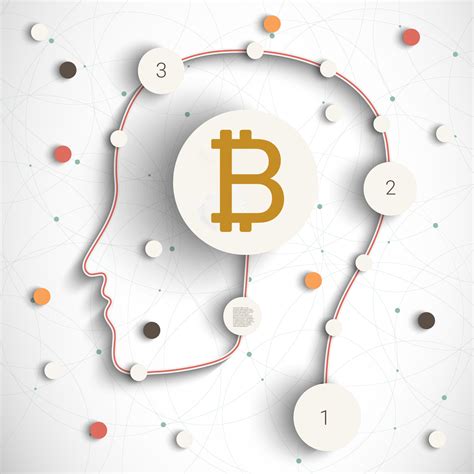Cryptocurrency has become a popular investment option for many people around the world. However, unlike traditional investments, the world of cryptocurrency is highly volatile and unpredictable, with extreme fluctuations in value being a common occurrence. As a result, investors are often left wondering why they make emotional decisions about their money when it comes to cryptocurrency investing.
The psychology of crypto investing is a complex field that combines elements of behavioral economics, finance, and human psychology. Many people invest in cryptocurrency because they believe it will lead to financial freedom or they are caught up in the excitement of the market. However, these emotional reactions can lead to impulsive decisions, which can ultimately result in significant financial losses.
This article aims to explore the psychology of crypto investing and shed light on why we make emotional decisions about our money when investing in cryptocurrency. By understanding the underlying psychological factors that influence our decision-making, investors can better manage their emotions and make more informed decisions when investing in cryptocurrency.

Fear and Greed in Crypto Investing
The fear of missing out (FOMO) is one of the most common emotional drivers of cryptocurrency investment. It’s human nature to want to participate in a lucrative opportunity that others are taking advantage of. However, FOMO can cause investors to jump into the market without doing proper research or understanding the risks involved. This can lead to impulsive decisions and losses.
On the other hand, greed can also drive investment decisions. When investors experience a winning streak, they may become overconfident and make riskier bets. This is known as the overconfidence bias. As a result, investors may fail to recognize warning signs and potential losses, leading to poor investment decisions.
Recognizing and managing emotional biases is crucial for successful crypto investing. By understanding the psychological factors that impact investment decisions, investors can develop a more rational approach to decision-making. This includes setting realistic expectations, diversifying portfolios, and taking calculated risks based on thorough research and analysis.
Overconfidence and the Dunning-Kruger Effect
Overconfidence bias can lead investors to make poor decisions, as they may overestimate their ability to predict market movements or manage risk. The Dunning-Kruger effect, a cognitive bias in which people with low ability or knowledge in a particular area overestimate their competency, can be particularly dangerous in crypto investing for novice investors. These individuals may believe they have a deep understanding of the market when they do not, leading to poor investment choices.

Herd Mentality and Social Proof
Herd mentality, or the tendency to follow the actions of a larger group, can influence investment decisions in the crypto market. Investors may feel that following the crowd is the best strategy for success, but this can lead to irrational decision-making. Social proof, or the idea that people are more likely to take an action if others are doing it, can further reinforce the herd mentality in crypto investing.
Anchoring and Confirmation Bias
Anchoring bias occurs when investors rely too heavily on a single piece of information or an initial reference point when making investment decisions. In the crypto market, this could mean fixating on a particular price point or a piece of news that seems to confirm an investor’s preexisting beliefs about the market. Confirmation bias, or the tendency to seek out information that confirms one’s existing beliefs, can also play a role in crypto investing. Investors may be more likely to ignore or downplay information that contradicts their expectations or opinions about the market.

Loss Aversion and Sunk Cost Fallacy
Loss aversion bias can lead investors to be overly cautious in the crypto market, as they may be more concerned with avoiding losses than maximizing gains. This can lead to missed opportunities for profit. The sunk cost fallacy, or the idea that people are more likely to continue investing in a project or asset because they have already invested resources in it, can also be a danger in crypto investing. Investors may hold onto a cryptocurrency that has lost value, hoping that it will eventually recover, even when it may be wiser to cut their losses and move on.
Conclusion
Emotions play a significant role in the decisions investors make about cryptocurrency. By understanding the emotional biases that can impact investment decisions, investors can take steps to manage their behavior and make more rational choices. Through a rational approach to investing, investors may be better positioned to navigate the volatility of the crypto market and achieve their financial goals.





Add comment